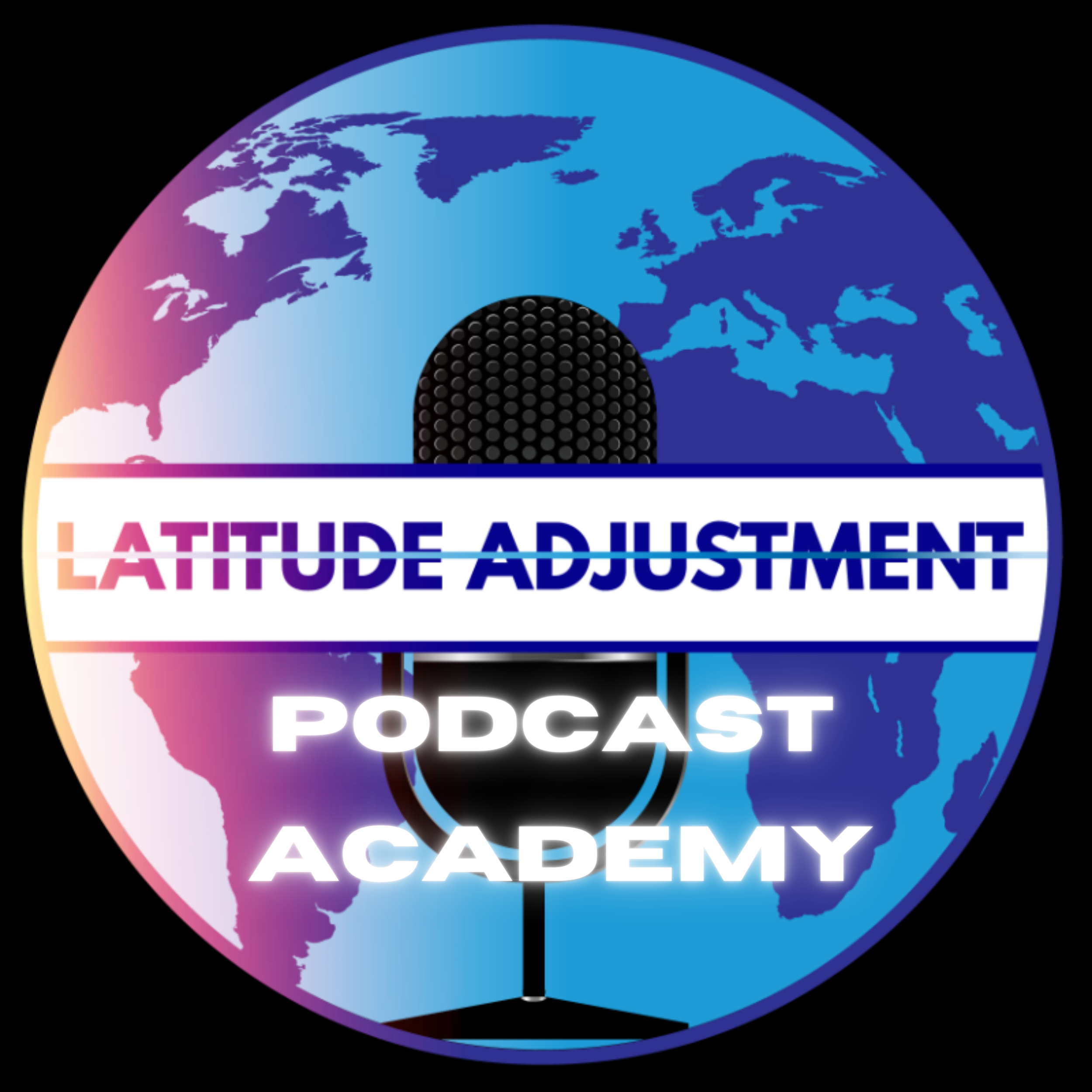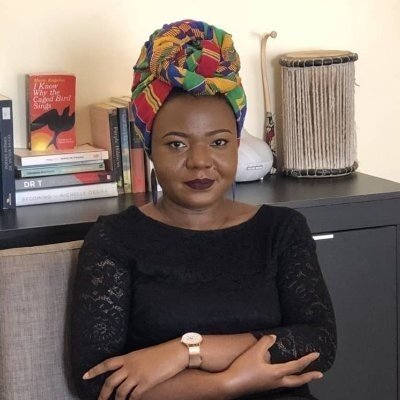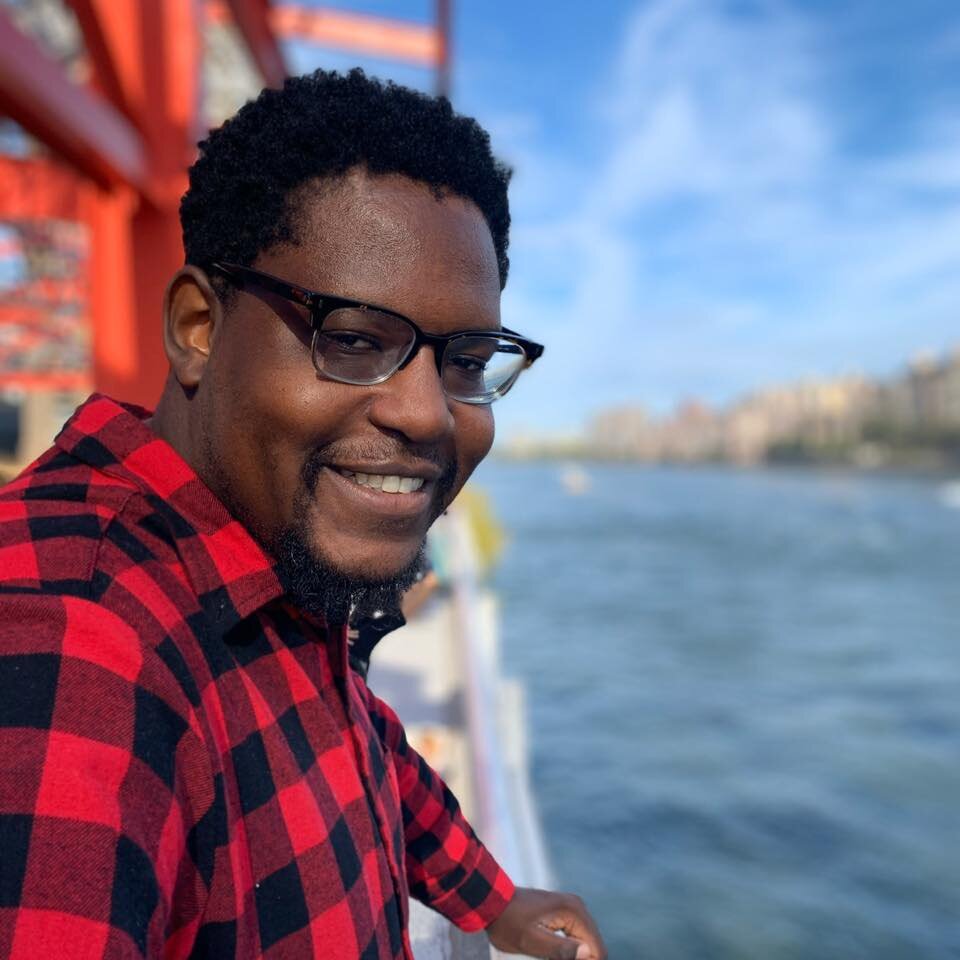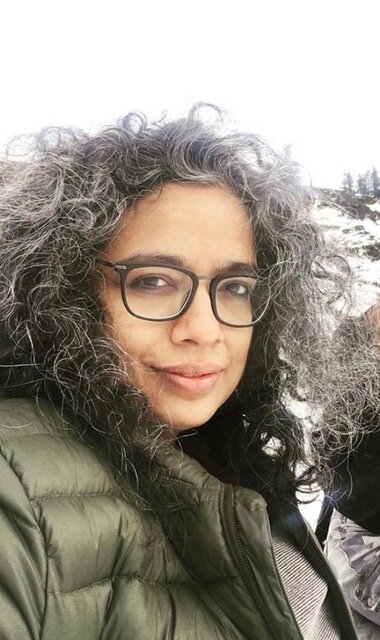Latitude Adjustment returns to Lesvos to launch a new phase of our programming, a podcast academy!
Over the next several weeks Latitude Adjustment Podcast will be working with students and asylum seekers from the Refocus Media Labs team to help them produce their own podcasts. Be sure to look for their episodes in the coming weeks.
This special episode will also update you on major events that have taken place on Lesvos since we left in February. A lot has happened.
As you wait for the release of our students’ episodes be sure to follow our progress on Instagram, and check out our four-part series about Moria and the conditions of refugees in Greece, from earlier this year
If you would like to support our efforts you can sign up for a monthly contribution through our Patreon page. Stay tuned for more in the coming weeks!
73: Africa, Race, and Racism in the Aid Community (2 of 2)
This episode is the second of a two-part conversation with Tity Agbahey. Tity is an attorney and a staffer at Amnesty International. Based in Senegal, her current work focuses on central Africa, though her previous work has focused elsewhere on the continent, and her life and travels have taken her to points beyond.
This pair of episodes should appeal to two types of listeners, those who know what it feels like to be the only one who looks like you in your university class, in your staff meetings, or on a discussion panel at a conference, and those who don’t but who want to understand.
This is also a conversation about colonialism, paternalism, and racism in one of the last places you should expect to find it, in the international aid and development sector. It’s also a conversation about the world’s general ambivalence towards African suffering, the benefits and limitations of African to African-American solidarity, privilege within an African cultural context, racism in France, internalized colonialism, an African perspective on racism in the US, and everything else we could think to get off of our chests during a very open conversation.
72: Africa, Race, and Racism in the Aid Community (1 of 2)
This episode is the first of a two-part conversation with Tity Agbahey. Tity is an attorney and a staffer at Amnesty International. Based in Senegal, her current work focuses on central Africa, though her previous work has focused elsewhere on the continent, and her life and travels have taken her to points beyond.
This pair of episodes should appeal to two types of listeners, those who know what it feels like to be the only one who looks like you in your university class, in your staff meetings, or on a discussion panel at a conference, and those who don’t but who want to understand.
This is also a conversation about colonialism, paternalism, and racism in one of the last places you should expect to find it, in the international aid and development sector. It’s also a conversation about the world’s general ambivalence towards African suffering, the benefits and limitations of African to African-American solidarity, privilege within an African cultural context, racism in France, internalized colonialism, an African perspective on racism in the US, and everything else we could think to get off of our chests during a very open conversation.
Also it is in no way our intention to suggest that the opinions and points put forth in this episode represent the full depth and breadth of views held by 1.3 billion Africans. This is not the first, and it will certainly not be the last conversation about Africa and its 54 nations on this show, and we sincerely hope that you will check out our back catalogue and listen to previous episodes on related topics, from contemporary politics and economics in Zimbabwe, social entrepreneurship in the DRC, the Fulani people, and the role of women in Sudan’s ongoing revolution, to name just a few.
Episode 50: Zimbabwe
What comes to mind when you think of Zimbabwe? Perhaps a generic collection of images from the African continent? Wildlife, poverty, and despotism? Perhaps the long rule of Robert Mugabe, or the astronomical rates of inflation and illness and out-migration that have captured the scant bit of international publicity that the country has received in recent years?
When I traveled to Zimbabwe as a 14-year-old the country changed how I viewed the world and my place in it forever, and while the country has endured much hardship since I visited back in 1992, it remains a place of wonder in my memory as well as a place and a people deserving of more attention than the negative headlines.
When Robert Mugabe’s three decades of rule ended with a military coup in 2017 there were cautious hopes for what this might mean for the fortunes of Zimbabweans. Now two years later the country is still run by his ZANU-PF party, headed now by his former Vice President, and there are worrying signs that Zimbabwe may be edging back towards the type of economic crises that devastated the country in the 2000’s. What will it take for things to change for the better in Zimbabwe? Will the old revolutionary guard that has had a vice grip on power for decades need to be swept away by yet another revolution in order for the country’s fortunes to improve?
Anesu Masube grew up moving around Zimbabwe, so he has the good fortune to call the whole nation his home. We caught up with him in Washington, DC where he currently works as a Technology and International development professional.
Opportunities for Zimbabweans (Anesu is a co-founder)
Episode 49: The Gulf's Dirty Secret
The Kafala or “sponsorship” system is used throughout the Gulf countries (as well as Jordan and Lebanon) to monitor and organize migrant laborers, from recruitment abroad to their management upon arrival, and particularly in the construction and domestic work sectors.
Under the Kafala system a migrant worker’s presence in a host country is linked entirely to their employer, with the effect that it’s not only difficult or impossible to switch jobs, but all elements of their daily lives from access to their passports, their freedom of movement, their living conditions, their ability to leave the country, and their basic dignities are all controlled by their employer. And there is often little to no regulation put in place to protect workers against exploitation and abuse. And abuse has been rampant for decades. From sexual harassment and rape of domestic workers to squalid living conditions and work without pay for construction workers and manual laborers.
This dirty secret is often hidden inside of people’s homes or in isolated camps, so access to covering and exposing it is extremely difficult to obtain, which is why the work of our guest Vani Saraswathi and Migrant-Rights.org is so critical.
Episode 29: Malta & Refugees in the Mediterranean
Maria Pisani PhD is a Maltese citizen, lecturer, former head of office for the International Organization for Migration on Malta, and co-founder and director of Integra Foundation. As the EU’s smallest and southernmost member state, Malta has long been on the front lines of one of the busiest and the deadliest migratory paths on earth, where more than 14,000 people have lost their lives since 2014, attempting the crossing from North African shores to the EU.
We discuss Malta’s role in the refugee crisis, the features of Maltese policies and how they have shifted over the years, and the moral, political, and logistical implications of the EU’s policy of containment and deterrence since 2015 when Europe saw the largest numbers of refugees since the Second World War.

















